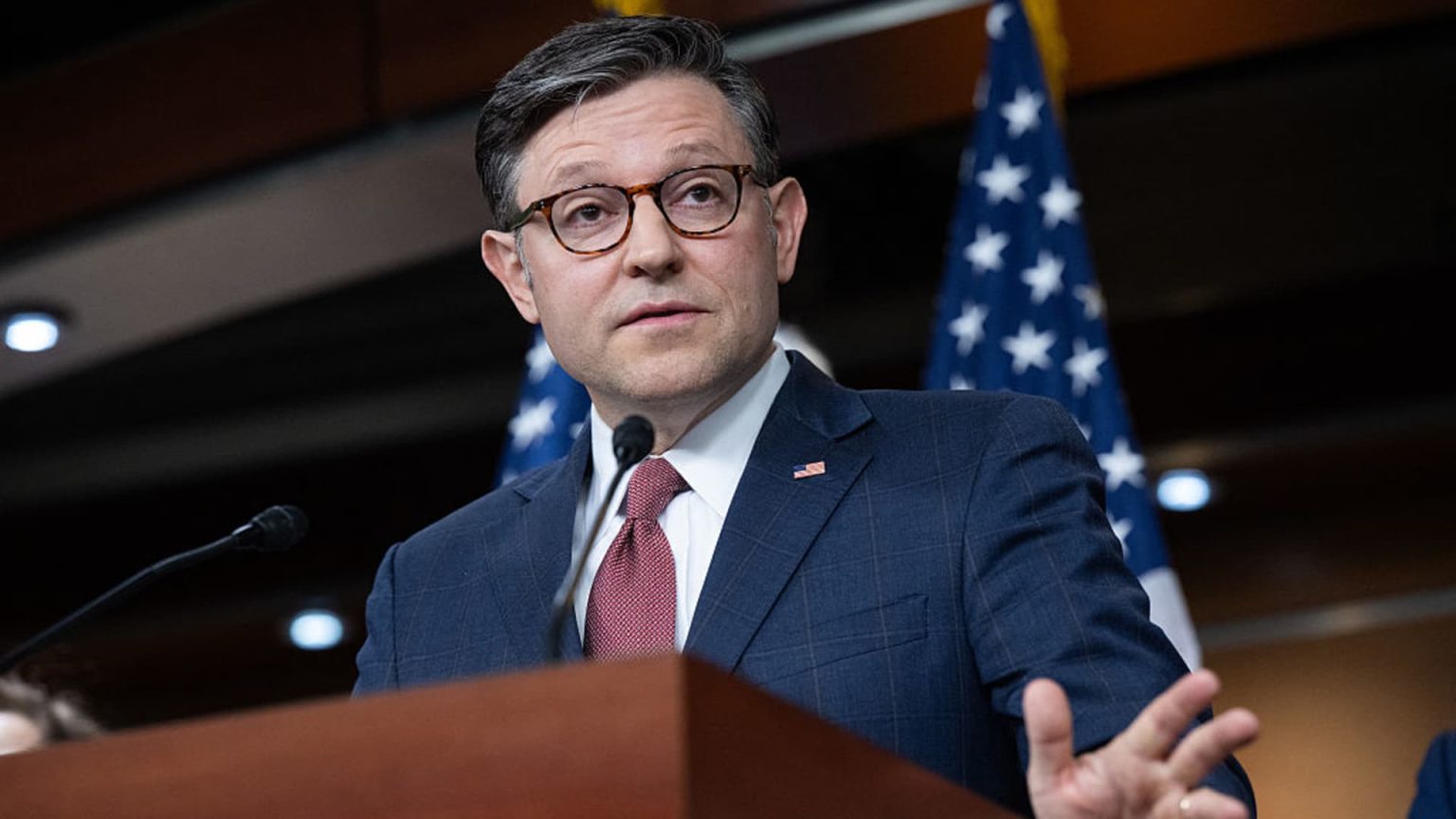In a recent commentary, House Speaker Mike Johnson expressed hope for reconciliation between former President Donald Trump and tech entrepreneur Elon Musk following a public fallout concerning legislation aimed at addressing federal spending. Johnson’s remarks came during an appearance on ABC’s “This Week,” where he acknowledged the emotional stakes involved and urged cooperation for the country’s benefit. The context stems from Musk’s fierce critiques of a massive spending package that narrowly passed the House, prompting friction between the two influential figures.
| Article Subheadings |
|---|
| 1) Overview of the Tensions Between Trump and Musk |
| 2) The Spending Bill and Its Implications |
| 3) Johnson’s Response to Musk’s Criticism |
| 4) The Fallout’s Impact on Political Alliances |
| 5) The Future of Relations and Potential Consequences |
Overview of the Tensions Between Trump and Musk
The discord between Donald Trump and Elon Musk has escalated significantly over the past weeks, primarily triggered by Musk’s fervent opposition to a massive spending bill that aims to address long-term fiscal challenges. Johnson noted that while the feelings surrounding the disagreement might be intense, there is a collective responsibility for public figures to come together in the interest of stability and governance. This tension reflects broader themes within American politics, where influential figures find themselves at odds over pressing issues like fiscal policy and social responsibility.
The Spending Bill and Its Implications
The legislation at the center of this conflict is a substantial spending package that has caught the attention of policymakers and private citizens alike. This multitrillion-dollar initiative seeks to address various sectors, including infrastructure, healthcare, and education. Although the bill successfully passed in the House, it faces a challenging road ahead in the Senate, where discussions are expected to be contentious. Critics, including Musk, have labeled the package as a “disgusting abomination,” expressing concern that it could lead to increased federal deficits. Supporters, however, argue that the bill is necessary to stimulate economic growth and support struggling American families.
Johnson’s Response to Musk’s Criticism
In response to Musk’s vehement attacks on the spending bill, Mike Johnson sought to clarify his stance, emphasizing that his legislative efforts aim to benefit hard-working Americans rather than cater to wealthy individuals. Johnson remarked,
“I didn’t go out to craft a piece of legislation to please the richest man in the world; what we’re trying to do is help hardworking Americans.”
This serves to underline the ideological divide within American politics, where discussions about wealth and responsibility often shape legislative priorities. Johnson’s comments also highlight the importance of balanced feedback and constructive dialogue among policy influencers.
The Fallout’s Impact on Political Alliances
The backlash following Musk’s comments has not only impacted his relationship with Trump but has also reverberated throughout broader political circles. Musk has been a major financial backer for Trump, having contributed significantly to his presidential campaign through various avenues, including a super PAC that reportedly spent around $200 million. The ongoing feud now raises questions about Musk’s future contributions to Republican candidates, particularly if he were to publicly support Democratic figures. As press secretary Karoline Leavitt noted on a Sunday program, the former president currently has no intentions of mending fences with Musk, suggesting that the schism may be wide and lasting.
The Future of Relations and Potential Consequences
As the fallout develops, both Trump and Johnson have emphasized the potential repercussions that Musk could face if he chooses to support Democratic candidates against Republicans endorsing the spending bill. Johnson reinforced Trump’s warning, stating that it would be a “big mistake” for Musk to align himself with opposing parties. Musk’s influential position as a billionaire donor brings added weight to his future political endorsements, and analysts are watching closely to see how this complicated relationship unfolds. The ramifications could potentially reshape alliances and fundraising strategies in upcoming electoral cycles, impacting both established and emerging political narratives.
| No. | Key Points |
|---|---|
| 1 | House Speaker Mike Johnson hopes for reconciliation between Trump and Musk following public clashes. |
| 2 | Musk publicly criticized a major spending bill, labeling it detrimental to the economy. |
| 3 | Johnson asserts that legislation aims to help working-class Americans, not just the wealthy. |
| 4 | The fallout may impact Musk’s political alliances and future donations. |
| 5 | The relationship between Trump and Musk appears increasingly strained, with potential long-term implications for political funding. |
Summary
The recent tensions between Donald Trump and Elon Musk showcase the intricate dynamics of American politics, particularly regarding fiscal policies. House Speaker Mike Johnson‘s hope for reconciliation emphasizes the necessity for unity among influential political figures. As the spending bill proceeds to the Senate, the outcomes of this conflict could have significant implications for future political alliances and funding, shaping the landscape of U.S. governance.
Frequently Asked Questions
Question: What is the spending bill about?
The spending bill aims to address several sectors such as infrastructure, healthcare, and education, with the intent to stimulate economic growth and support struggling American families.
Question: Why did Elon Musk criticize the spending package?
Musk criticized the spending package for being a “disgusting abomination” that could lead to increased federal deficits, reflecting his concerns over fiscal responsibility.
Question: How might this fallout impact Musk’s political contributions?
With Trump indicating a reluctance to repair relations, Musk’s future contributions to Republican candidates are uncertain, potentially affecting funding dynamics in the upcoming electoral cycles.


